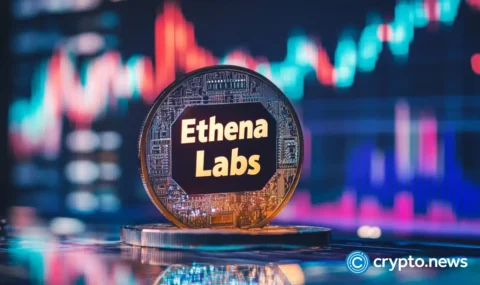
Binance-backed BNB Smart Chain is set to undergo the Pascal hard fork, bringing key features from Ethereum’s Pectra upgrade.
BNB Smart Chain, the smart contract platform within the BNB Chain ecosystem, is prepping for a major update that borrows features straight from Ethereum’s Pectra upgrade to boost cross-chain compatibility.
The new upgrade, which is part of BNB Chain’s 2025 roadmap, aims to speed up transactions, simplify user experience, integrate AI, and improve developer tools, according to a December 2024 blog post from the team. Crypto.news takes a quick look at what’s changing and whether BEP-20 token holders need to take any action.
What new features Pascal will bring
Before you get too excited, unlike Bitcoin’s 2017 hard fork, which led to the creation of Bitcoin Cash, the Pascal upgrade will not result in a new coin. Instead, the update introduces technical improvements, including native smart contract wallets and enhanced security as well as modifications for cryptography, the developers said in a Feb. 21 blog post announcement.
Since one of BNB Chain’s primary objectives is to implement a smart contract wallet solution similar to Ethereum’s EIP-7702 proposal for enhanced account abstraction, the Pascal fork is expected to introduce multi-signature support for smart contract wallets. In addition to this, the developers also aim to introduce a new feature that will enable users to adjust spending limits and execute batch transactions, ultimately enhancing overall efficiency and usability.
Addressing the security aspect, the BNB Chain team says Pascal strengthens security by integrating a new proposal, which will make it faster and more efficient to verify transactions. The so-called BEP-439 proposal is understood to reduce the amount of work needed to perform calculations, though the exact details are yet to be seen in practice.
“It has a special mathematical structure (called a twist) that reduces the amount of work needed to perform calculations. This makes it much faster and more memory-efficient compared to older cryptographic curves.”
The BNB Chain
The developers have assured that regular users won’t need to take any action in response to the update. However, they cautioned that once the upgrade is implemented, gas costs could experience periods of volatility, potentially fluctuating before stabilizing.
“Regular BNB Chain users don’t need to take any action. The upgrade will happen automatically, and most Dapps will continue functioning as expected. However, users of Dapps that are highly sensitive to gas cost changes should stay updated with announcements from those platforms.”
The BNB Chain team
As for blockchain developers, the BNB Chain team says they’ll need to make sure their apps work smoothly with the upcoming changes. While the full details of the upgrade are still to be revealed, the BNB Chain team advises protocol developers to prepare by exploring smart contract wallets to build more user-friendly decentralized apps with better security and flexibility.
For example, the Pascal hard fork changes the block header structure, so blockchain developers who deal with block headers will need to pay attention to this. One of the new additions is the so-called “RequestsHash” feature, which makes the block header format compatible with Ethereum’s EIP-7685 proposal.
The BNB Chain team is warning that if developers do not update their code accordingly, their hash calculations could end up being incorrect, potentially leading to issues on the network.
When Pascal upgrade will happen
The Pascal hard fork will be rolled out in two stages. The first phase kicks off on Feb. 25, when the upgrade will be deployed on BNB Smart Chain Testnet, the network used for testing different ideas before implementation on the main network. The rollout on the testnet will allow developers to track any bugs and see how the new features work in practice.
As for the main upgrade, it’s planned for mid-March. However, there’s still a chance the final date could be pushed back — as it was with the testnet rollout initially expected for Feb. 12 — if any unexpected issues are found in the code during testing.
The BNB Chain team calls Pascal a “big milestone,” as it set the stage for the two next huge forks: Lorentz (expected to arrive someday in April), which will reduce block intervals to 1.5 seconds, and Maxwell (somewhere in June), which will further reduce block intervals to 0.75 seconds.





